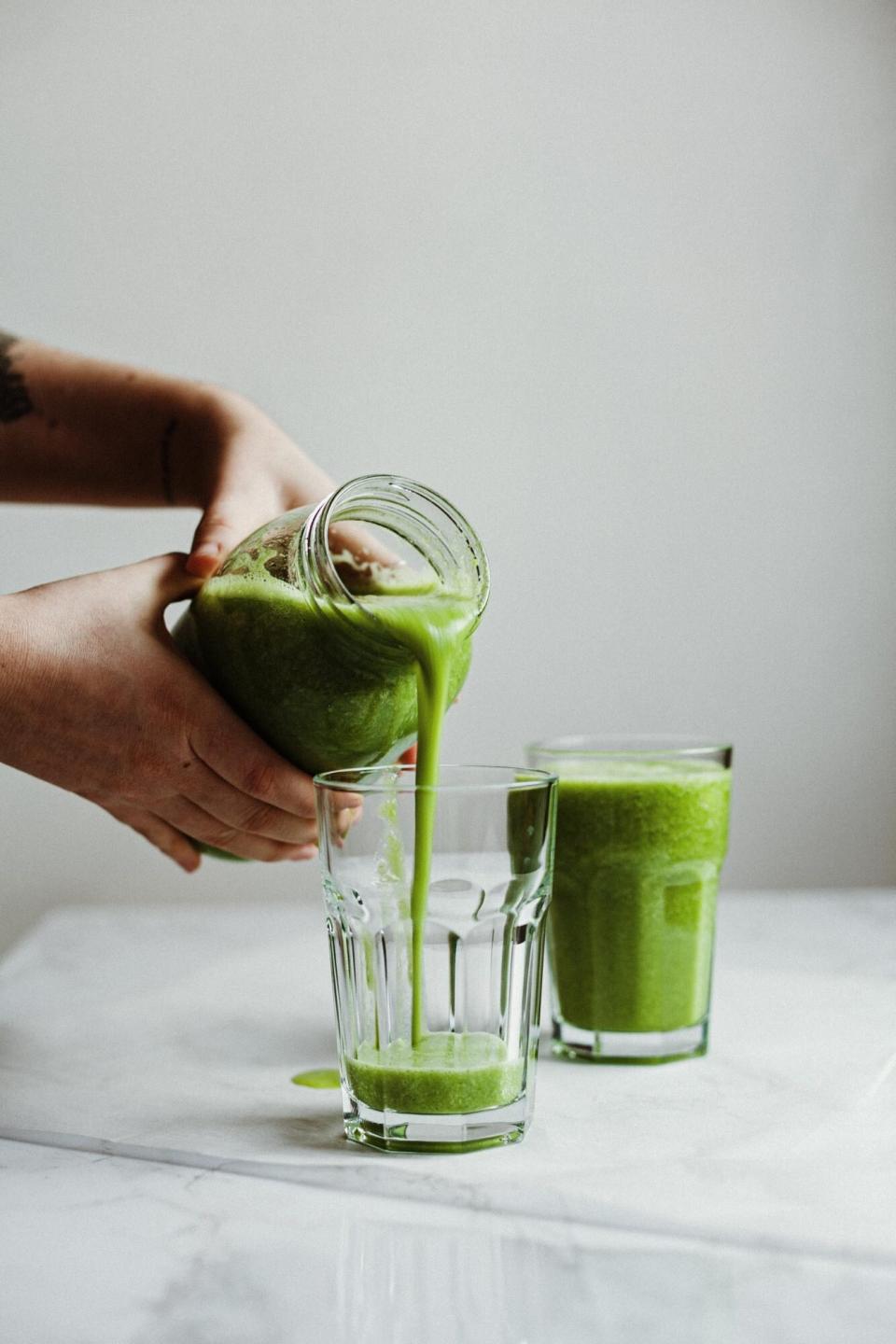Here's Why Your Skincare Should Be Cold-Pressed, Like Your Green Juice

Getty Images
Keeping up with the surge of "cure-all" wellness fads is a job in and of itself. In our column Wellness Inspector, we do the work for you, closely examining these trends to see if they're worth your hard-earned pennies—or whether they're just hype.
Skincare can be confusing. With so many products, ingredients, and philosophies available at an arm's reach, it's easy to feel overwhelmed and out of touch. That's not to mention the vague and sometimes misleading buzzwords that companies use to market themselves, such as words like "clean," "green," and "natural."
The latest beauty buzzword to enter the chat is "cold-pressed." Every month it seems like there are more and more cold-pressed skincare products hitting the market. That begs the question: what does the term "cold-pressed" actually mean? And why do some people say that cold-pressed products are better for the skin? We turned to the experts to find out everything there is to know about this skincare trend.
What does "cold-pressed" mean?

Unsplash
According to Suzanne LeRoux, green beauty expert and founder of One Love Organics, cold-pressing refers to an ingredient extraction process. "Cold-pressing is a mechanical process in which oils, butters, and extracts are extracted without heat or minimal heat and/or no chemical intervention," she says. "The raw plant material is typically pressed to extract the oil, in rotating circular presses at a temperature of around 120 degrees Fahrenheit."
Vicki Engsall, green beauty expert and founder of The Jojoba Company, is intimately familiar with the cold-pressing process since that's the method her company uses when producing its jojoba products. "When a bean or a seed or a nut is cold-pressed, a mechanical crusher or expeller compresses the ingredient until its oil is released and then it is filtered and bottled," she explains.
What kind of ingredients are usually cold-pressed for skincare?
"Cold-pressed usually refers to plant-based ingredients in skincare like plant oils, extracts, and butters," LeRoux says. This explains why it's common to see cold-pressed ingredients in skincare products from brands who market themselves as "clean," "green," or something similar. "Most people think of olive oil when they think of cold-pressing, but so many ingredients in skincare are cold-pressed including our own jojoba from our farm," Engsall says. "Some other ingredients that are normally cold-pressed are ingredients sourced from nuts, seeds, beans, or even flowers such as rosehip, sunflower, macadamia oil, Argan oil, and so many more."
Are cold-pressed ingredients better for the skin?

Unsplash
Cold-pressing isn't the only ingredient extraction method—companies can also use heat and/or chemicals to get the job done. However, according to cosmetic chemist Ron Robinson of BeautyStat, using these methods could "degrade/oxidize the nutrients and render them less pure." The idea, then, is that cold-pressing provides the most nutrient-rich results. "Cold-pressed skincare might be more nutrient-dense and therefore provide additional skincare benefits," he says.
Take it from LeRoux, who says, "plant oils, butters, some essential oils—like citrus—and extracts like rosehip are the best when cold-pressed because this method allows the vitamins, minerals, and phyto-nutrients to remain intact. Heat can cause the delicate molecules within the oils to break down and degrade, which can minimize the oil's skin benefits. Because of the increased heat, the oil loses some of the essential nutrients during extraction."
Engsall says that heat and chemical extraction result in larger amounts of oil and require less effort, money, and material. However, if you want to get the most nutrient-rich result, cold-pressing is the way to go. "Oils which are cold-pressed have increased antioxidant capacity and more antioxidants like vitamins A, C, and E, which means more protection and prevention for the skin. It also protects the natural preservatives in the oils, such as tocopherol, and increases stability in the oils, which means they have a naturally longer shelf life and can often go without synthetic preservatives. Cold-pressing delivers a pure, potent, highly effective oil."
Now that you understand cold-pressed skincare, here are some of the best products on the market:
Best cold-pressed cleanser:
- 36 Available at Sephora
Best cold-pressed face oil:
- 15.99 Available at Ulta
Best cold-pressed balm:
- 49 Available at Ulta
Best cold-pressed eye cream:
Available at Amazon
Best cold-pressed moisturizer:
- 48 Available at Sephora
Best cold-pressed peel:
- 29 Available at Sephora
Best cold-pressed lip balm:
- 6 Available at Jojoba Company

